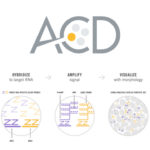With the Cancer Immunotherapy market forecast to increase to $9 billion by 2022, it’s no surprise that the burgeoning sector has attracted the attention of biotech and pharma investors across the globe. Earlier this week two of the leading cancer immunotherapy players, Kite Pharma & bluebird bio, announced a strategic collaboration with the aim of co-developing and co-commercialising second-generation TCR (T-cell receptor) product candidates to treat HPV-associated Cancers.
The product candidates will target the human papillomavirus type 16 E6 (HPV-16 E6) oncoprotein incorporating gene editing and lentiviral technologies. bluebird bio has a platform comprised of lentiviral gene delivery and gene editing capabilities, with a focus on rare diseases and cancer immunotherapies. Kite has a broad existing pipeline of TCR product candidates and will continue to develop its existing and wholly-owned TCR programs directed against high-risk HPV, which are unaffected by this collaboration, including HPV-16 E6 TCR, currently in a Phase I study, and HPV-16 E7 TCR. The collaboration brings together the powerful technologies and capabilities of these two leading immunotherapy companies.
Human papillomavirus (HPV) is the most common viral infection of the reproductive tract, with two viral strains, HPV type 16 and type 18, believed to cause 70% of cervical cancers and precancerous cervical lesions, as well as other urogenital cancers. There were over 500,000 new cases and about 270,000 deaths attributable to cervical cancer worldwide in 2012.
Additionally, HPV infection has become established as an etiologic risk factor for oropharyngeal head and neck cancers. The incidence of HPV-associated oropharyngeal cancers has been increasing for at least the past decade, and recent studies show that about 70 percent of oropharyngeal cancers may be linked to HPV. According to the CDC, there are over 12,000 new cases of oropharyngeal cancers in the U.S., of which an estimated 7,500 new cases are attributable to HPV-16.
Under the terms of the agreement, both companies will jointly develop and commercialize second generation TCR product candidates directed against the HPV-16 E6 oncoprotein, incorporating gene editing to efficiently modify certain genes to enhance T cell function. In addition, the companies will explore using lentiviral vectors to optimize delivery of HPV-16 E6 TCRs into patient T cells.
Kite will lead the program in the U.S., and bluebird bio will have the option to lead the program in the European Union. Both companies will share overall costs, including research and development and sales and marketing expenses, and profits will be equally split between the companies. Additionally, Kite will have a co-promotion option in the European Union, and bluebird will have a co-promotion option in the U.S.
Read more about the collaboration via Kite Pharma’s press release.
Follow Evolution Global Talent Attraction on Twitter, Facebook and LinkedIN to keep up-to-date with news and trends from the biotechnology, biosciences, medical device, IT and Intellectual Property industries.





